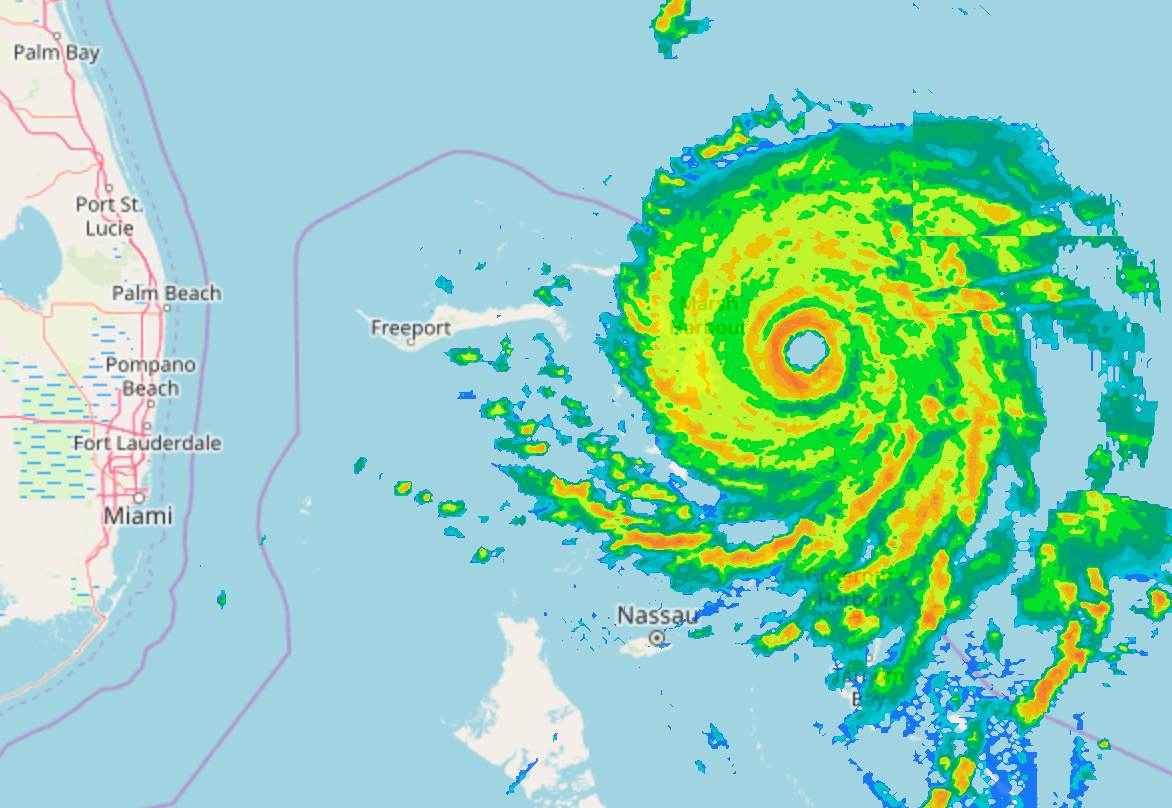The climate conditions seen in the North Atlantic ocean at the moment are conducive to the formation of tropical storms and hurricanes, so suggest a chance of elevated hurricane activity in 2021 and beyond, according to global reinsurance firm Swiss Re, something the main forecasters are also pointing towards.
 The 2020 Atlantic hurricane season saw a total of 30 named storms form during the season, which was a record number.
The 2020 Atlantic hurricane season saw a total of 30 named storms form during the season, which was a record number.
Out of this some 13 hurricanes and 6 major hurricanes formed as well, while the United States saw numerous landfalls.
Swiss Re highlighted that five named storms made landfall in the US state of Louisiana alone, which was another record for the 2020 season.
“This year a uniquely conducive set of atmospheric and oceanic conditions was predicted to generate a well- above-average number of storms and landfalls,” the reinsurance company explained.
But, insurance and reinsurance market losses from named storm and hurricane activity was not as high as you might have thought, for such an active year when storms turned towards the United States.
In fact, Swiss Re estimates that as most US landfalls missed densely populated areas, the insurance market loss from 2020 Atlantic storm activity was only around $20 billion.
That’s significantly lower than lower than the previous record hurricane seasons of 2017 (Harvey, Irma and Maria: USD 97 billion) and 2005 (Katrina: USD 87 billion).
However, the industry could face another year of challenges from the tropics in 2021 and also beyond, as Swiss Re believes the climate set-up could mean further active years of tropical storms are ahead.
Martin Bertogg, Head of Cat Perils at Swiss Re, explained, “Large-scale climate conditions in the North Atlantic suggest elevated hurricane activity for 2021 and likely beyond.
“This increases the probability of a catastrophic landfall. Combined with the loss impact of secondary perils accelerated by climate change, insured catastrophe losses will only rise in the future.”
This aligns with the very early forecasts from some of the meteorology teams that track Atlantic tropical storm and hurricane activity.
Recently, forecasters at Colorado State University (CSU) led by Phil Klotzbach explained that the 2021 Atlantic hurricane season depends on two key factors, the strength of the Atlantic Multi-Decadal Oscillation (AMO) and the phase of El Niño-Southern Oscillation (ENSO).
The Colorado State team assign the highest probability of occurring to a 2021 hurricane season that sees an above average AMO and no El Niño conditions developing.
For this scenario, the team provides a 35% chance of occurring and says that this could mean a season with an Accumulated Cyclone Energy (ACE) of around 130, which would suggest around 12-15 named storms, 6-8 hurricanes, and 2-3 major hurricanes.
The team give a 25% chance that ACE is around 170, which would indicate a particularly active 2021 hurricane season, with around 14-17 named storms, 9-11 hurricanes, and 4-5 major hurricanes.
Klotzbach told Fox, “Early indications are that 2021 could potentially be another active season. Right now, we have about a 50% chance of having an above-normal hurricane season.”
North Atlantic sea surface temperatures are the other key factor, which the Colorado team noted is harder to predict at this stage of the year.
Currently though, most forecasts call for the moderate La Niña conditions in the Pacific to lessen and neutral ENSO to be the case in summer 2021. But this is also uncertain this far out and even a neutral ENSO year can see relatively high tropical storm activity.
Another early outlook from Tropical Storm Risk (TSR) predicts that North Atlantic hurricane activity in 2021 will be above the long-term norm, but lower than the hyperactive 2020 hurricane season.
“At present TSR anticipates that the July-September 2021 trade wind speed will be slightly weaker than normal – due mainly to our expectation for weak La Niña conditions to occur at this time – and thus will have an enhancing effect on North Atlantic hurricane activity in 2021,” the forecasters suggest.
The TSR forecasters call for 16 named tropical storms, 7 hurricanes and 3 major hurricanes in 2021, above the long-term average but closer to the near-term norm of the last ten years.
TSR explained, “There is a 50% probability that the 2021 North Atlantic hurricane season ACE index will be above-average, a 31% likelihood it will be near-normal and a 19% chance it will be below-normal.”
Of course, numbers of storms does not necessarily equal significant impacts to reinsurance and insurance-linked securities (ILS) capital, as it only takes a single landfalling storm in a populated region to cause significant losses.
There are other factors at play, some climate related, which can also bring losses.
Swiss Re specifically warned this week about the potential for secondary peril impacts to increase, as climate change is expected to exacerbate secondary peril events going forwards.
With more humid air and rising temperatures set to create more extreme weather conditions, Swiss Re believes this will favour the onset and spread of secondary peril events, which it notes includes storm surges and floods, two potential secondary impacts of the Atlantic hurricane season.
The 2021 Atlantic hurricane season is a long way off, but meteorologists and climate scientists are already pointing to a set-up that could prove conducive to named storm formation during the hurricane season.
If steering currents prove similar to this year, that could put the United States back on target for tropical storm activity in 2021.
 View all of our Artemis Live video interviews and subscribe to our podcast.
View all of our Artemis Live video interviews and subscribe to our podcast.
All of our Artemis Live insurance-linked securities (ILS), catastrophe bonds and reinsurance video content and video interviews can be accessed online.
Our Artemis Live podcast can be subscribed to using the typical podcast services providers, including Apple, Google, Spotify and more.































